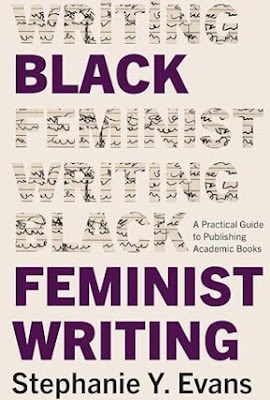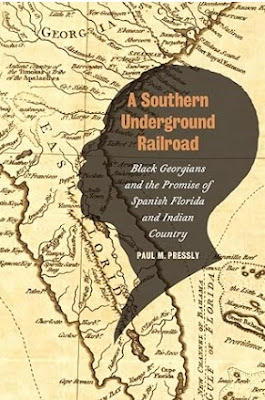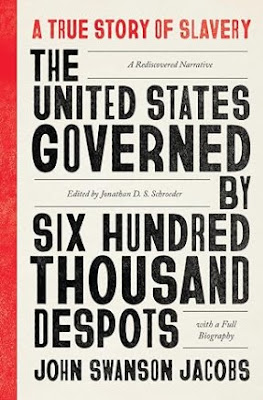by Louise Story and Ebony ReedA sweeping, narrative history of Black wealth and the economic discrimination embedded in America’s financial system.
The early 2020s will long be known as a period of racial reflection. In the wake of the police killing of George Floyd, Americans of all backgrounds joined together in historic demonstrations in the streets, discussions in the workplace, and conversations at home about the financial gaps that remain between white and Black Americans. This deeply investigated book shows the scores of setbacks that have held the Black-white wealth gap in place—from enslavement to redlining to banking discrimination—and, ultimately, the reversals that occurred in the mid-2020s as the push for racial equity became a polarized political debate.
Fifteen Cents on the Dollar follows the lives of four Black Millennial professionals and a banking company founded with the stated mission of closing the Black-white wealth gap. That company, known as Greenwood, a reference to the historic Black Wall Street district in Tulsa, Oklahoma, generated immense excitement and hope among people looking for new ways of business that might lead to greater equity. But the twists and turns of Greenwood’s journey also raise tough questions about what equality really means.
Seasoned journalist-academics Louise Story and Ebony Reed present a nuanced portrait of Greenwood’s founders—the entertainment executive Ryan Glover; the Grammy-winning rapper Michael Render, better known as Killer Mike; and the Civil Rights leader and two-term Atlanta mayor, Andrew Young—along with new revelations about their lives, careers, and families going back to the Civil War. Equally engaging are the stories of the lesser-known individuals—a female tech employee from rural North Carolina trying to make it in a big city; a rising leader at the NAACP whose father is in prison; an owner of a BBQ stand in Atlanta fighting to keep his home; and a Black man in a biracial marriage grappling with his roots when his father is shot by the police.
In chronicling these staggering injustices, Fifteen Cents on the Dollar shows why so little progress has been made on the wealth gap and provides insights Americans should consider if they want lasting change.
Louise Story is a prize-winning investigative journalist who spent more than 15 years at the New York Times and the Wall Street Journal, where she was the top masthead editor running coverage strategy. Her work investigating corruption led to the largest kleptocracy case in U.S. history, a case known as the 1MDB case. Her work investigating Wall Street and the derivatives market led to a multi-billion dollar settlement. And her work investigating Goldman Sachs during the 2008 financial crisis led to that bank’s S.E.C. settlement. Projects she led received industry honors including Emmy Awards, and Pulitzer Prize finalist citations, and Online News Association awards. Louise’s film The Kleptocrats aired on the BBC, Apple and Amazon. She teaches at The Yale School of Management.
Ebony Reed began her career as a reporter at The Plain Dealer, covering Cleveland public schools, documenting public education’s inequities. The Investigative Reporters & Editors organization recognized her examination of how social promotion impacted the district’s majority Black and brown students. At the Detroit News, she managed the local coverage during the 2008 economic crisis. Now the Chief Strategy Officer at The Marshall Project, she has held other senior roles at the Associated Press, Boston Business Journal, and the Wall Street Journal. She’s taught at more than a half dozen institutions, including The Yale School of Management.
Harper
ISBN-13 978-0063234727
Fifteen cents on the dollar. Fifteen cents - the data virtually stuck where it was generations ago - is the amount of wealth that typical Black families have compared to one dollar of the typical white family's wealth. This Black-white wealth ratio remains almost as stark as it was in the years after the Civil War, when it stood at 1.8 cents on the dollar. The gap initially narrowed quickly in the late 1800s, but then its progress was slowed. Further improvements in the later 1900s were reversed in the 2000s. Hundreds of years into our national history, and despite the recent racial reckoning, Black Americans continue to encounter structural barriers that were long ago designed to restrict their economic success. Most Black Americans are still born into comparative economic disadvantage and face near-impossible odds to achieve equality. But why has this number been stuck in place so long, and how can Americans better understand the role racial wealth gaps play in the world around them?
Now, in FIFTEEN CENTS ON THE DOLLAR: How Americans Made the Black-White Wealth Gap, seasoned journalist-academics Louise Story and Ebony Reed offer a comprehensive, deeply human narrative history of Black wealth and the economic discrimination embedded in America's financial system through public and private policies that created today's Black-white wealth gap. Following the lives of seven Black Americans-some famous and some not well-known- of different economic levels, ages, and professions during the three years following the police killing of George Floyd, the authors bring data, research, and history to life. The trail of these families connects events after the Civil War and throughout the twentieth century to the lives of individual s today. FIFTEEN CENTS ON THE DOLLAR explains the scores of setbacks that have held the Black-white wealth gap in place - from enslavement, redlining , and banking discrimination to, ultimately, failures that occurred in the mid-2020s as the push for racial equity became a polarized political debate.
"America, and Americans, made the Black-white wealth gap," write Story and Reed. "And our society continues to hold it in place." Signs of incremental progress have been hollow victories against generations-old systemic injustice. FIFTEEN CENTS ON THE DOLLAR provides crucial insight into American economic equity, Black business ownership, and political and busine ss practices that leave Black Americans behind. In chronicling these staggering injustices, the authors also reveal some pathways to lasting change.
SUGGESTIONS FOR CHANGE
The authors also can offer suggestions that they believe will help close the Black-white wealth gap. These suggestions are predicated on accepting two things: (1) That it's important to lift more Black families on the ladder of wealth and (2) That we do not want wealth gaps that are racialized or specific to demographics.
First, support more transparency into the wealth distribution in our country. The Department of Labor regularly reports on employment levels and the Department of Commerce reports on GDP. To help close the wealth gap, the United States would also benefit from a regular "wealth report" examining where the wealth is accruing and where it is not.
Second, ask who benefits from new government or company policies. Push policymakers to ensure that benefits are reaching the people who they are intended to reach and that benefits are inclusive of the neediest people. To create inclusive policies, it is important to have people of different backgrounds in all levels of leadership in the government and in education, companies, and nonprofits. And because of historic injustices, Black Americans and other minorities need extra follow-up reviews to see whether they are receiving benefits as intended. Think about how Black Americans did not receive full access to New Deal and GI benefits.
Third, pay attention to conversations around risk and pricing. In business and in government, practices were developed more than one hundred years ago that supported charging higher prices to "riskier" people, which makes economic sense, particularly for businesses. But as a society we need to ask are we trying to hold less advantaged people back or help them move forward? Are there instances where we can find room for the government or a third party to help defray the cost of that risk.
Fourth, when someone says they want to close a wealth gap, ask "For which people?" Depending on which measures you look at, you could close some gaps without helping lots of people. With the Black-white wealth gap, for instance, if you measure all dollars in the hands of white Americans versus all dollars in the hands of Black Americans, concentrating more money in the hands of the wealthiest Black Americans appears to be a valid way to close the gap. But would that be right? Ask about the who as well as the how. Ask yourself whose opportunity you' re fighting for.
Fifth, be open to change. If you want a more equitable, it may mean that more affordable housing is built near your home; it may change the way your company decides who gets promoted; it may mean that the way your children's school handles grading is reevaluated. Have discussions with the goal of finding a path forward that opens doors for more people. Listen out for money-over-morals arguments, where people say they are in favor of something that is more inclusive but then back away for fear it will cost them money.
Sixth, partner with someone different from you. The authors are themselves an example of partnering across racial lines. They believe that if more people took on large projects partnered with someone with very different backgrounds from their own, that could spread greater societal understanding and empathy for others.


























